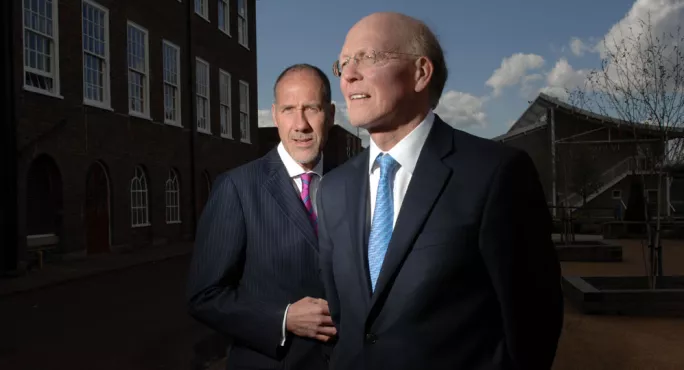Keith Budge, headmaster of independent school Bedales, visits Geoff Barton, headteacher of King Edward VI, a comprehensive school
What I most admire about King Edward VI is its determination to pursue breadth. It does this in two ways: by embracing drama, art, music, school magazines and what I call the life of ideas; and through a distinctive programme that cultivates leadership qualities in its young people.
Perhaps most impressive - and illuminating - was the part played by the exchange scheme with a school in Shanghai. I was especially intrigued by this because Bedales has had a comparable relationship with a school in Shanghai for a similar length of time. The King Edward VI relationship is not only in better fettle than ours but it is also integral to the leadership programme. I was all ears when this was described to me. It’s a really enlightened and effective system, and much more educational and organised than our relatively haphazard approach. Note to self, firmly made.
What else is transferable to my setting? Data tracking and intervention occupy a lot of space in Geoff’s mind and play a major part in the school’s institutional heft. Bedales also does a good deal of targeted intervention, but the science and scale of it at King Edward VI is of a different order.
What strikes me as the biggest difference between maintained and fee-paying schools is this: in my sector, although one eye is always kept on inspection requirements, we are judged against our school’s stated aims above all else.
Based on what I saw at both King Edward VI and Hardwick Middle School (where Geoff is executive headteacher), data determines the Ofsted judgement. However enlightened the school leadership, the spectre of Ofsted stalks the corridors, whether you like it or not.
I have a sinking feeling. At its root is the fear that to run a school with the breadth and humanity of King Edward VI, you need to fight against a mechanistic and, it appears, hostile inspection regime. Geoff is holding out, but will his successor have the same courage and self-belief?
Geoff visits Keith
Just as headmaster Keith Budge is a product of boarding schools - a world I know only from reading grim novels - I’m a comprehensive school devotee. Obsessively and boringly so, I fear.
Now I had been transported into the bucolic epicentre of one of the world’s most famous boarding schools. It wasn’t what I expected.
On the day I visited Bedales, pupils sat on the grass revising, talking and laughing. One child played on a metal sculpture of a horse set among some apple trees. There’s no uniform, no bell, no Sir or Miss, just a different sense of what being at school means.
During my visit, I saw much that was liberating. For example, students of all ages are expected to participate in outdoor tasks every day, working with animals or plants, making or growing things.
Keith sees his job as one with just two priorities: the school’s performance and its distinctiveness. Although he has to maintain the high profile of Bedales, he seems untrammelled by the mechanistic accountability regime that prevails across the state sector. Ofsted and performance tables figured nowhere in my discussions with him.
Tellingly, I encountered staff who said they felt lucky to teach at Bedales, several having fled the state sector because of its joyless obsession with targets and testing.
Did I come away thinking that Bedales was a better school than my own? In truth, no. In fact, I drove home feeling prouder than ever of what we are able to achieve with fewer resources, on a larger scale and with young people from a wider range of backgrounds. But I also realised that I’ve been quick to judge all private schools, using the kind of easy generalisations that I hate seeing applied to all state schools. Context is everything.
This is an edited version of a feature from the 19 June issue of TES. You can read it on your tablet or phone, or by downloading the TES Reader app for Android or iOS. Or pick it up at all good newsagents.




